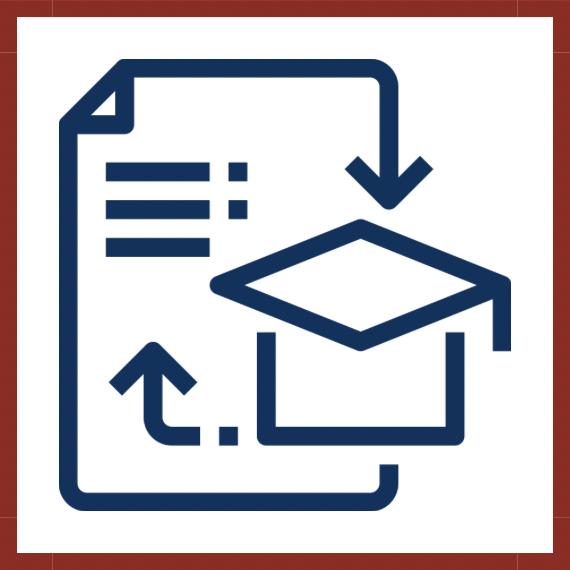Level and Duration of Department: PhD, 8 Semesters
Our Mission
Our program leads participants to advanced knowledge and skills in Software Engineering, fostering the development of industry-leading professionals. Embracing an interdisciplinary approach, we provide students with a broad perspective and encourage innovative research. By instilling a commitment to ethical values, we equip students with a sense of responsible leadership and societal contribution. Through close collaboration with the industry to ensure global competitiveness, we cultivate graduates as sustainable, innovative, and ethically-driven professionals. Our focus is on shaping individuals who pioneer advancements in software technologies and contribute value to the industry.
Our Vision
Our program aims to establish itself as a globally recognized reference point, offering a leading-edge education and research experience in the field of Software Engineering. By providing students with the ability to identify the latest technological developments and influence the industry, we encourage them to surpass excellence. Our vision is centered on nurturing globally recognized leaders with a commitment to ethical values and innovative thinking. The program aspires to lead the way in shaping the future of the Software Engineering world by fostering visionary professionals who contribute value to the industry through leading research.
Purpose of the Department
The primary aim of the Software Engineering Doctoral Program is to provide students with in-depth knowledge and expertise in the field of Software Engineering and to cultivate them into industry-leading pioneers. In pursuit of this objective, students are exposed to an interdisciplinary perspective, enabling them to engage in innovative research. The program is committed to graduating individuals who adhere to ethical values, exhibit responsibility, and possess the qualifications to compete globally. Additionally, the program seeks to foster strong collaborations with the industry, empowering students to generate solutions that contribute value to the sector.
Department Achievements
1. In-Depth Knowledge of Software Engineering: Provide students with the understanding and application skills of fundamental topics in Software Engineering.
2. Innovative Software Solutions: Equip students with the ability to follow the latest developments in the field and develop original and innovative software solutions.
3. Interdisciplinary Collaboration Skills: Foster the ability to work collaboratively across different disciplines, addressing complex problems from a multidimensional perspective.
4. Effective Research Skills: Develop students' capabilities to conduct effective research in the field of Software Engineering and expand their knowledge in this area.
5. Professionalism Aligned with Ethical Values: Instill in students a commitment to ethical values, social responsibility, and adherence to professional ethical standards.
6. Industry Collaborations: Aim to establish collaborations with industry leaders and organizations to empower students to develop software solutions tailored to industry needs. In line with these objectives, the program aims to provide students with a broad theoretical foundation and practical skills, nurturing them into qualified professionals capable of leading in the field of Software Engineering.
Employment Opportunities
Graduates of the program will have diverse employment opportunities in the following areas:
1. Research and Development (R&D): Engage in innovative research and contribute to the development of cutting-edge software solutions.
2. Academia: Pursue academic careers as expert or researcher, advancing knowledge in Software Engineering through teaching and scholarly activities.
3. Industry Leadership: Assume leadership roles in the software industry, overseeing the development of software projects and managing Software Engineering teams.
4. Consultancy and Training: Provide consultancy services in Software Engineering, offering expertise to organizations, or engage in training activities to share knowledge within the industry.
5. Government and Public Sector: Contribute to governmental and public sector initiatives, applying Software Engineering expertise to address societal challenges.
6. Entrepreneurship: Establish their own software development companies or startups, driving innovation and contributing to the entrepreneurial ecosystem. The program aims to prepare graduates for diverse career paths, ensuring they are well-equipped to make valuable contributions in various sectors and address the evolving demands of the Software Engineering field.
How the Lessons are Conducted
The Software Engineering Program, conducted through an Internet-based Learning Management System (LMS), offers students learning opportunities using a distance education model. This allows students to participate in classes online and complete the program. Here is more information about the functioning of such an LMS-based program:
1. Online Course Material: The course material of the program is accessible on the LMS platform. Students can access lecture notes, slides, videos, reading materials, and other resources from this platform.
2. Video Lectures: Instruction is supplemented with recorded video lectures. Students can watch these videos online, providing them with an opportunity to understand the course content.
3. Live Classes and Webinars: Some programs organize live classes or webinars. Students can participate in these live sessions, interacting with instructors.
4. Interactive Discussions and Forums: The LMS provides interactive discussion boards and forums. These platforms allow students to ask questions related to the course and engage in discussions with fellow students.
5. Student Assessments: Online quizzes, assignments, and project submissions are used to measure students' achievements. These assessments evaluate students' understanding and application skills.
6. Customized Course Programs: The LMS offers customized course programs for students. They can choose courses that align with specific areas of interest or career goals.
7. Online Communication: Students can communicate with instructors and classmates through the LMS. Email, messaging, and video conferencing tools can be utilized.
8. Research and Project Collaboration: Students can collaborate on research projects through the LMS. This provides students with the opportunity to form online study groups.
9. Exams and Diplomas: Students who successfully complete the program receive a PhD degree diploma. Programs conducted using an Internet-based LMS offer students the opportunity to receive education independent of geographical and time constraints.


Bölüm Müfredati / Department Curriculum
